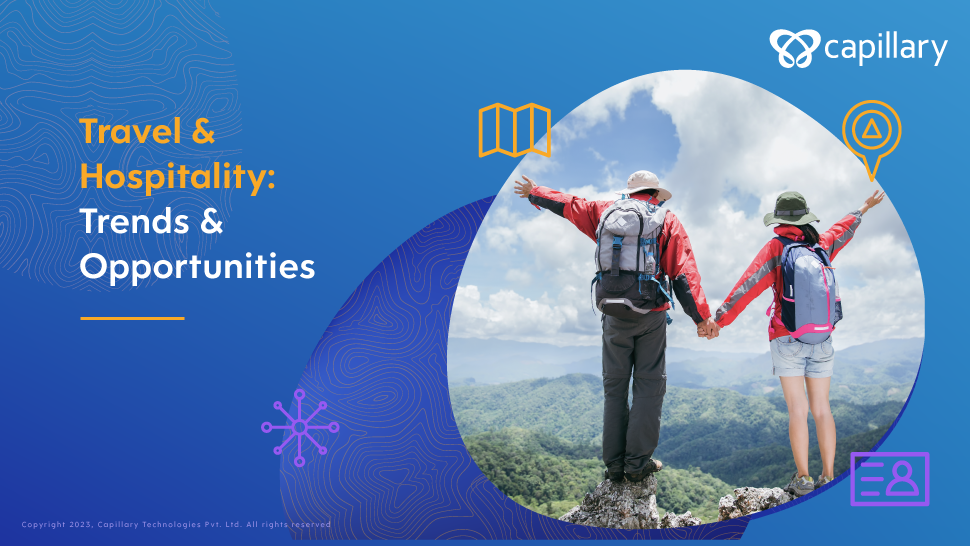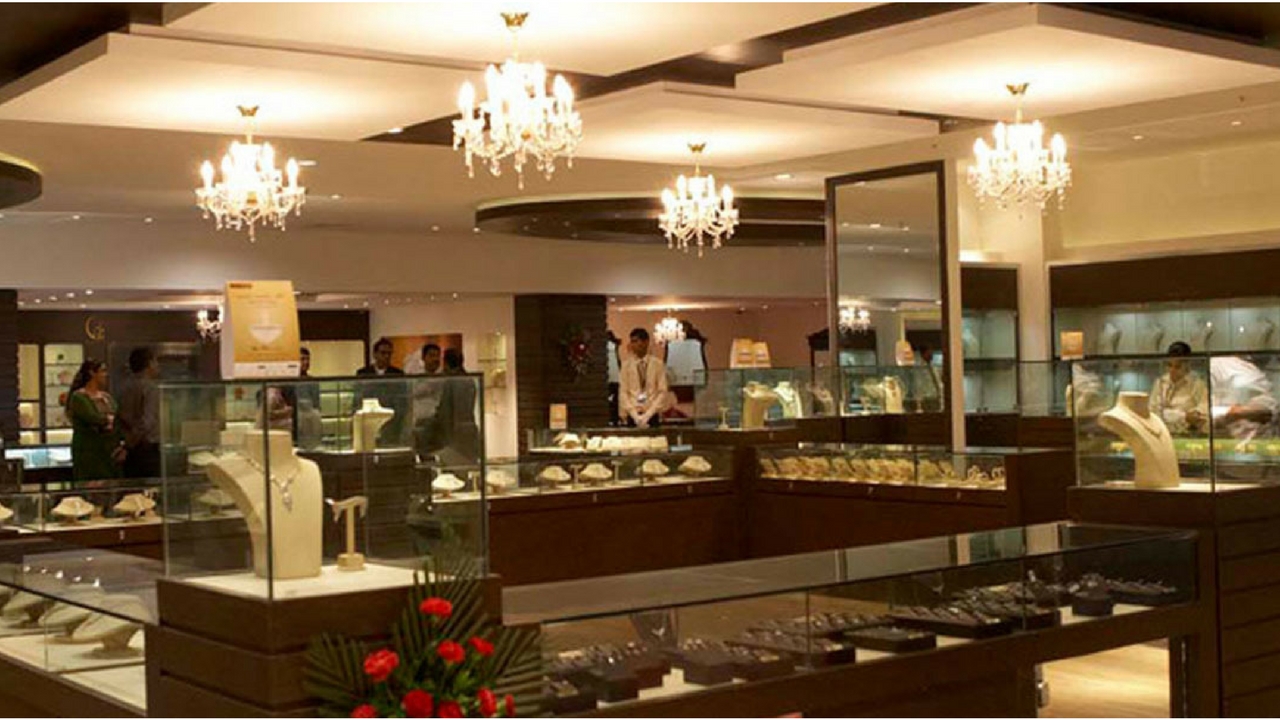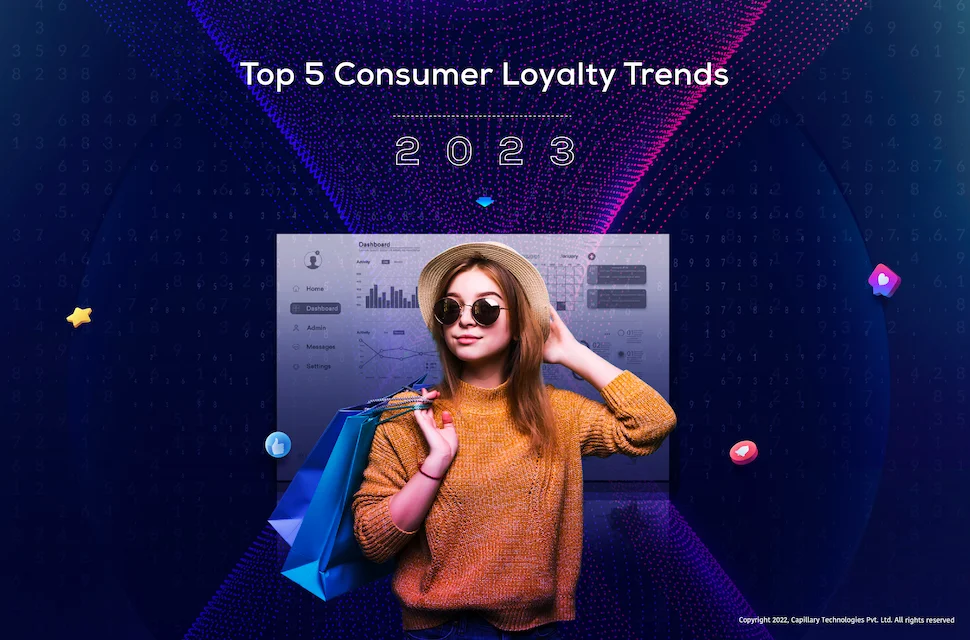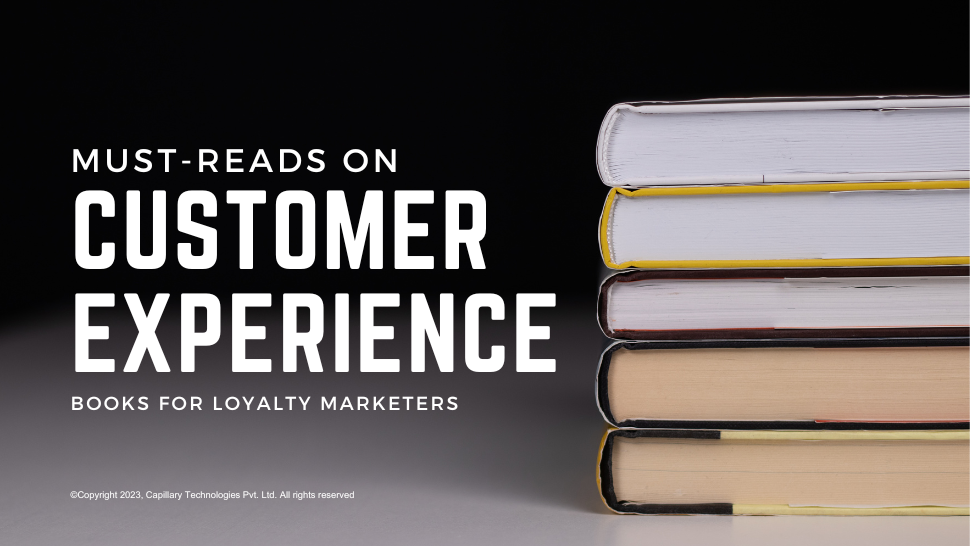- Design industry shaping loyalty programs
- Integrate easily and go live quicker
- Deliver hyper-personalized consumer experiences
Blue Rewards from Al Futtaim Group Shares Loyalty Success Stories and Evolution. Watch Podcast >
Capillary Announces 2nd Annual Captivate 2025 Summit: Transforming Loyalty Management with New AI Tech Read more >

No other industry has experienced the long-lasting effects of the global pandemic as much as the travel and hospitality industry. The almost complete halt of travel forced travel brands to take extreme measures to stay afloat long enough for traveling to resume again. Global travel has since bounced back and ticked upwards towards pre-pandemic levels, although the split between business and leisure travel is dramatically different from pre-pandemic behaviors. According to the Hospitality Global Market Report 2023, the global hospitality market grew from $4,390.59 billion in 2022 to $4,699.57 billion in 2023 at a compound annual growth rate (CAGR) of 7.0%.
With the return of travel came a shift in travelers’ needs and expectations of their experience and desired engagement with airlines and hotels. Technology and a digital-first approach had long ago taken hold in the travel and hospitality ecosystem; the pandemic solidified & quickened this transformation. In this new era, hotel and airline companies need to innovate and look at customer loyalty through a new lens; reimagining how to attract, retain, and delight their travelers.
Successful travel and hospitality brands are investing in technology and partners that can create differentiating, unique experiences for travelers throughout their entire travel journey. Some of these loyalty trends and opportunities that have emerged include:
We’ve always shared the notion that loyalty programs need to be more than just earning and redeeming points. Sure, points can be a component of your loyalty program, but there needs to be more engaging, sticker, non-transactional aspects that keep the traveler engaged and motivated to be loyal to your brand. Making your loyalty program more dynamic with third-party offers from partners, adding soft benefits for members and creating experiential aspects is critical for success. We share additional thoughts around experiential loyalty below.
Experiential rewards invoke emotional loyalty and create memorable experiences with your brand. Successful brands will offer experiential rewards as both a redemption option and as soft benefits for high-tier members. Experiential rewards are unique, unforgettable experiences that create a lasting sentiment beyond a coupon or lower rate. These experiences could be anything from a handwritten note from flight crew to top-tier members, a complimentary bottle of champagne waiting in your hotel room, or even behind-the-scenes access to the hotel kitchen with a renowned chef. Loyalty members are also more prone to share these unforgettable experiences with their friends and family, giving the program and the brand more visibility and perceived value.
In the age of virtual and augmented reality, immersive experiences have continually increased in prevalence and popularity, including loyalty programs. Immersive experiences are multisensory interactions facilitated by digital technology that imitate a desired physical reality. A few examples include virtual concierge service for loyalty members before checking into the hotel to a complete airport metaverse that allows travelers to explore authorized-only places like the control tower or cockpit of a plane. Hilton’s Connected Rooms are also another example (as well as an example of the end-to-end travel journey ownership battle between airlines & hotels, but more on that later), allowing guests to use the Hilton Honors app to completely personalize their room with the use of technology – from their favorite streaming provider, to being able to upload their own artwork to display.
We all know sustainability is an important point of emphasis of the travel and hospitality industry. Businesses and individuals have become more conscious of their impact on the environment when it comes to the consumption of energy, water, and other resources. Inserting environmentally-friendly incentives within your loyalty program not only encourages more sustainable actions but also drives emotional loyalty with the traveler. An example could be that loyalty members get an extra 10 points for reusing their towels, airline travelers receive priority booking if they book a nonstop flight, or even the option to donate their rewards/points to a charity or organization of their choice with the brand matching that donation.
During the pandemic and subsequently post-pandemic, most hotels and airlines offered to extend or even upgrade their loyalty members to a higher, elite status. This was a welcome perk, as most frequent travelers were all but sidelined and unable to raise or even retain their status. Since then, travel restrictions went basically to zero and there was an influx of ‘elite’ or higher-tiered loyalty members who were downgraded. This has caused frustration and disappointment for downgraded members, who lost certain perks and benefits. Companies need to see this as an opportunity to uniquely connect and engage with those downgraded members in a way that doesn’t make them leave the program. Creating personalized journeys for these certain members that encourages them to stay and re-engage with the program, is critical.
Another evolving dynamic that is taking place in the travel and hospitality industry is the struggle between airlines and hotels vying for the title of owner of the ‘end-to-end travel experience.’ The one who controls the entire journey is the one who owns the data, trends, and user experiences for future research and development. That is why both are working in tandem with partners across their businesses, trying to capture the customer from the second they book till the time they walk off the plane, and everything in between.
As noted earlier in the post about Hilton’s Connected Rooms, these third-party partnerships and integrations all aim to own the end-to-end traveler journey. Delta’s partnership with Starbucks is another example of owning the entire traveler journey, even when the traveler isn’t traveling. The loyalty partnership encouraged Delta SkyMiles and Starbucks Rewards members to link their accounts to earn one mile per $1 spent at Starbucks and double Stars on days traveling on Delta. The company also has a partnership with Lyft, where linked accounts earn 1 mile per $1 spent on Lyft rides. These types of integrations and partnerships encourage and incentivize travelers to use one company to power their entire travel journey.
Capillary has extensive experience in leading and innovating in the travel and hospitality industry. Not only was the loyalty platform specifically designed to inspire and delight travelers throughout their entire lifecycle with ML & AI, but the recent partnership announcement with Sabre has ramped up the hospitality & airline experience and reach across the globe. Reach out to us today to learn more about Capillary’s travel & hospitality experience and how we stay ahead of trends and deliver memorable experiences across their entire travel lifecycle.

July 26, 2011 | 4 Min Read
Positioned as a lifestyle store for women, ‘Maya by Gitanj

January 1, 2023 | 5 Min Read
Which are some of the top customer loyalty trends that are l

December 3, 2024 | 5 Min Read
Discover the best books on customer experience and loyalty t